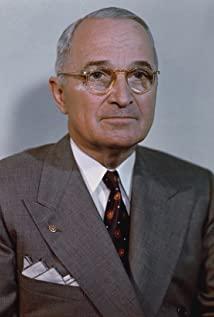The whole story has three timelines. The main line of the story is that Turing and the smartest group of algorithm experts in the UK at the time developed a machine called "Christopher", thus deciphering the German communication tool Enigma. This machine is the prototype of the future computer. There are two side lines, one side line is Turing’s first homosexuality when he was a teenager. The person he had a crush on was Christopher. The other is that Turing’s house was broken in. Detectives investigated and learned of what Turing had done during World War II in prison. Turing was sentenced for homosexuality. This is a tragedy in a sense. At the end of the story, Turing asked the detective to judge him as a mathematician? Gay? Or a war hero? The detective said he could not judge. Yes, all the judgements are redundant. We just need to know that his mind made the Second World War two years ahead of schedule and saved millions of lives.
A great mind is great because he can think out of the box and solve problems in an unprecedented way when the smartest group of people are confined to tradition. Even if no one can understand him, even if he becomes a freak in everyone's eyes. The great mind is great because when everyone is dazzled by the ecstasy of code-decoding, he can calm down and play with the enemy with the most rational and logical thinking and win the final victory. He said: Our goal is not to win a battle and save a few people. Our goal is to win the entire war against Nazi Germany. Even then he was seen as a cold-blooded monster.
The great mind is great because he can see things that his contemporaries cannot see, and his thoughts are decades ahead of others. The detective asked Turing: Can machines think like humans? He said no, a machine cannot think like a human, but it has its own way of thinking. A thing's way of thinking is different from ours, doesn't mean it can't think. As smart as he is, he must know that in the future world, computers will subvert the way humans work and learn. Artificial intelligence is still the object of research and conquered by scientists. The great mind is great because he not only sees the future, but also participates in and influences the future in his time.
"Sometimes it is the people no one imagines anything of who do the things that no one can imagine." A tribute to all those who used to be freaks in the eyes of others but have their own world in their hearts. Humanity cannot move forward without you "awkwardly" smart people.
View more about The Imitation Game reviews











